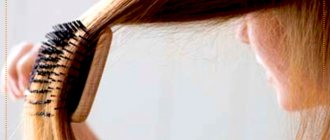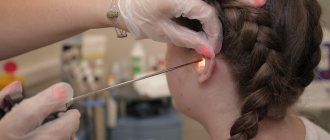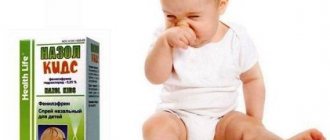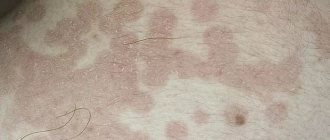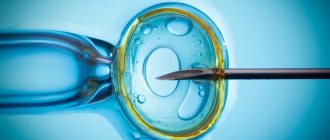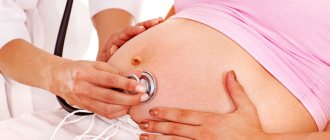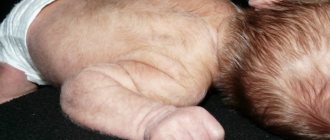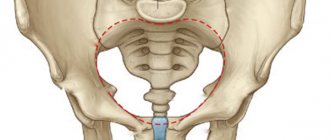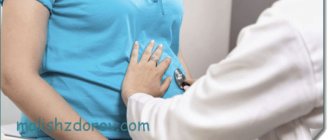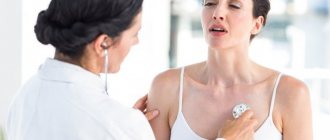During pregnancy, the expectant mother is susceptible to many diseases. This happens due to the fact that from the beginning of the gestational period the body’s immune resistance decreases. For this and other reasons, a woman may encounter a problem such as pityriasis rosea during pregnancy. It manifests itself as spots on the skin of a characteristic shape and shade, as well as itching. The disease is not transmitted to the fetus and does not pose a clear threat to it, complicating pregnancy only with discomfort for the mother. Gibert's disease (this is also the name of this type of lichen) often goes away on its own, but more often treatment is used taking into account the interesting situation of the patient.
Features of the disease
During pregnancy, the female body becomes more susceptible to infection with pityriasis rosea. To a greater extent, this is due to the hormonal changes occurring in the body, but it is impossible to say exactly why the disease arose. There is an opinion that pityriasis rosea during pregnancy occurs due to the penetration of herpes viruses types 6 and 7, and some claim that the pathology is caused by streptococcus. It is believed that the bacterium plays the role of a kind of “trigger” device that causes an allergic reaction in the form of Gibert’s disease.
Presence of symptoms and causes
Dermatosis is a complex disease; it is accompanied by a number of dermatological manifestations. There are many reasons for the occurrence of the disease. Symptoms and signs are usually the same:
- rash with small pimples;
- constant itching;
- peeling of the skin;
- pigmentation disorder.
Basically, all the causes of the disease depend on the state of the body, as well as on the immune system, sometimes on changes in hormonal levels during pregnancy. The main causes of the disease are considered to be contact with the pathogen or allergic manifestations. In some cases, lichen is found due to a lack of vitamins, stress, overwork, or a cold.
Causes
According to statistics, Zhiber's disease most often develops with:
- hypothermia;
- overheating;
- decreased immune defense;
- frequent stress;
- metabolic disorders;
- emotional stress.
And these are not all the favorable factors that can lead to the development of pityriasis rosea during pregnancy. It can occur if your diet includes foods rich in allergens. The same reaction can occur to medications and vitamins. In spring and autumn, when immune defense decreases, the risk of the disease increases. Moreover, those who suffer from allergies, even with minor manifestations, are more prone to infection.
Causes of pityriasis rosea in pregnant women
Pityriasis rosea or Gibert's disease is a type of viral infection that appears on the skin in the form of rashes and red spots. It is not uncommon to see them on the arms, back, shoulders, thighs or stomach.
According to statistics, the infection occurs in people aged 1 to 45 years. You can become infected with it only once in your life - in the future, the body develops a strong immunity. Full recovery occurs after 2 months.
information Most often, symptoms occur after communicating with a sick person or animal. It is believed that the virus can be acquired even through infected objects - towels, dishes, and so on.
But in a woman in this position, pityriasis rosea can also be triggered by other factors:
- Allergic reactions;
- Weak immunity;
- Regular stress;
- Fatigue;
- Avitaminosis;
- Exacerbation of chronic diseases;
- Overheating or hypothermia of the body;
- Various insect bites;
- Systematic use of rough body sponges.
information In a pregnant woman, pityriasis rosea may appear as a reaction to foods that are considered allergens. The reaction may also occur from taking certain medications. Doctors have noticed that in pregnant women, the disease often manifests itself in the off-season, when the immune system weakens.
Clinical manifestation
The first manifestations of Zhiber's pink lichen during pregnancy are changes in appetite - it disappears, malaise appears, and the temperature rises slightly. When examining the lymph nodes, a slight increase in individual groups may be observed.
After these manifestations, a large pink spot forms on the skin - about five centimeters in diameter. Peeling is observed in its center. After about ten days, smaller oval pink spots form not far from this mother plaque. Most often, new formations appear on the stomach, back, arms and legs. The face and scalp are rarely affected. The spots appear gradually, about once every week and a half. In the classic course of the disease, they do not merge into one large spot, but affect individual areas of the skin where there is a high concentration of sweat glands. The affected areas are very itchy, causing severe discomfort.
As the disease develops, the spots change color: they turn pale, become smooth, and then disappear. For some time, in the place where the stain was, the skin remains yellowish in color. In a different scenario, the clinical picture is not very different, since even in severe forms the symptoms of pityriasis rosea in humans are similar. Treatment of the disease begins as soon as the diagnosis is confirmed. After a couple of months, the disease completely disappears. If the illness lasts longer, this indicates a severe weakening of the immune system.
Symptoms of the disease
As soon as a woman becomes infected with this virus, the first symptoms appear:
- Weakness;
- Lack of appetite;
- Not a large increase in body temperature;
- Enlarged lymph nodes.
After this, signs of the disease appear on the skin:
- An oval or round spot of pink or red color appears;
- Similar spots spread throughout the body - every 10 days there are new foci of inflammation;
- They begin to itch and peel;
- Red spots become susceptible to moisture - as soon as water gets in, severe itching appears.
As a rule, spots almost never appear on the face or head.
At the peak of the disease, the inflamed areas of the skin are very itchy. As you heal, the spots fade and gradually disappear. After a couple of months, the symptoms completely disappear.
information To determine an accurate diagnosis, at the first signs of lichen, you should consult a doctor. He will conduct an examination and prescribe additional examinations - microscopy of scales from the spot, as well as urine and blood tests.
The danger of lichen during pregnancy
Not so long ago it was believed that pityriasis rosea during pregnancy had no effect on the fetus. However, numerous studies have shown that pityriasis rosea is not as harmless as was thought.
All women who become infected with lichen are negatively affected, especially if this occurs in the early stages of pregnancy. In the first fifteen weeks, there is a high probability of miscarriage and premature birth. The disease can also cause complications with the baby’s health. The more severely the lichen affects a woman, the more serious the consequences for the fetus.
If you seek help from a doctor late, a bacterial infection may develop. It causes suppuration of formations. Usually this complication is caused by severe scratching of the skin and its injury by hard tissue.
When infected in the second or third trimester, the child does not experience complications.
Traditional methods
As already mentioned, no special treatment is required for pityriasis rosea during pregnancy. You can get by with traditional methods. The affected areas are lubricated with onion pulp or juice. Cabbage leaves, previously greased with sour cream, are applied to the stains.
The rashes are wiped with a mixture of castor oil and calendula tincture, which are taken in equal parts. As an alternative remedy, a solution of mustard and vinegar is also prepared.
To treat lichen versicolor during pregnancy, herbs are used:
- St. John's wort;
- celandine;
- fresh sorrel;
- Sandy immortelle.
Infusions and decoctions are made from them, which are used to wipe the affected areas. They are also suitable for indoor use. The main condition for a quick cure is good immunity. To restore it, vitamins are used and a special diet is prepared.
Treatment of the disease
Pityriasis rosea is treated at home; hospitalization is not required for this disease. If pink or red spots appear on the skin, a woman should immediately consult a doctor. A dermatologist will make an accurate diagnosis, determine the cause of the pathology, and prescribe treatment. Many dermatological diseases are similar to Zhiber's lichen; it is impossible to independently distinguish it from other pathologies. After laboratory confirmation of the diagnosis, the doctor selects treatment.
There is no specific therapy for deprivation. It goes away on its own in about 2-14 weeks. Sometimes lichen lasts up to six months, but this phenomenon is extremely rare.
During pregnancy, you should not independently treat lichen, even to get rid of itching, since most medications are contraindicated for use in pregnant women and are potentially dangerous for the unborn child. As a result, attempts to treat pityriasis rosea at home without consulting a doctor can lead to disastrous consequences.
To make the disease go away faster, it is necessary to limit physical activity and change your underwear daily. In order not to injure the lesions, you should not use hard brushes or washcloths, and when bathing you should avoid cosmetic detergents and creams. You should take a shower no more than once a day, and after it, do not wipe with a towel: the skin is dried with blotting movements.
The diet must change. All fried, spicy, smoked foods, as well as exotic foods, flour, sweets, carbonated drinks, nuts, honey, chocolate and everything that could be a potential allergen are removed from the menu.
Nutrition and therapeutic diet
The patient must pay attention to his diet. The daily diet should be fortified, rich in macro- and microelements. You need to eat fruits and vegetables every day.
Various vitamin supplements will not be superfluous. Patients should remove all seafood, fish, dairy products, and smoked foods from their food. No canned products, eggs, alcoholic or low-alcohol drinks.
Mushrooms and citrus fruits are not recommended for consumption. Minimization of food products saturated with dyes and GMOs. For meat, preference should be given to lean pork, chicken or turkey.
Products must undergo heat treatment. It is recommended to eat boiled or steamed food.
The patient is allowed to consume the following products:
- Fermented milk products with minimal or no fillers;
- Legumes;
- Medicinal herbal decoctions;
- Liver;
- Porridge made from barley, oatmeal and rice;
- Rosehip decoction;
- Teas;
- Compotes from natural fruits;
- Still mineral waters.
Doctor's orders
To treat pityriasis rosea during pregnancy, the doctor uses a variety of remedies. To relieve itching, antihistamines are prescribed and a healthy diet is selected. Depending on the extent of the damage, it may be necessary to cleanse the body of toxins using antiseptic drugs. In some cases, treatment of depriving Zhiber with ultraviolet radiation with a wavelength of up to 320 nm may be prescribed. It is recommended to be in the sun and sunbathe as often as possible. The sun's rays have a positive effect on the duration of the disease, shortening it. When sunbathing in the sun, do not forget about the possibility of getting a sunburn.
In order to increase the body's defenses, doctors recommend:
- The use of multivitamins designed specifically for pregnant women. The drugs “Elevit”, “Vitrum prenatal”, etc. help against pink lichen during pregnancy.
- Treatment of all emerging viral and bacterial infections.
- Daily walks, gymnastics for pregnant women. Swimming has a positive effect.
- If an infection occurs, select antibiotics. The most commonly prescribed drugs are tetracyclines.
- If there is a risk to the fetus, the woman should take sedatives (prescribed by doctors).
Doctors select topical drugs:
- Mixtures of glycerin, talc, zinc and other useful substances.
- Hormone-containing ointments.
- Creams that help relieve itching.
All topical drugs are safe for the fetus, so they can be used during pregnancy, but strictly adhere to the dosage.
As an external remedy, treatment of formations with peach and sea buckthorn oil, phototherapy and other methods selected by the attending physician helps with pityriasis rosea. If you follow all the dermatologist's recommendations, pityriasis rosea will go away quickly, leaving no marks on the skin.
How to treat pityriasis rosea in a pregnant woman?
If a doctor has diagnosed a pregnant woman with lichen, she must adhere to some rules:
- Limit physical activity;
- Change linen daily;
- Use only natural cosmetics for body care;
- Shower procedures maximum once a day, and stains should not be washed with soap;
- Do not use a hard towel for the body.
information The patient should also adhere to a certain diet. It is not advisable to eat fried, spicy, fatty, salty foods, exotic fruits, alcohol, and sweets.
The doctor, in turn, prescribes treatment. For internal use the following is prescribed:
- Antihistamines (Claritin) – if there is swelling;
- Antibiotics (Tetracycline) – if the lichen has caused any complications;
- Vitamins (group A, B, C)
- Sedative medications – if there is a risk to the health of the fetus.
information Whenever possible, doctors try to avoid taking these drugs. If the disease is mild, vitamin therapy and local treatment are prescribed.
All kinds of creams and ointments will not be superfluous:
- Pharmaceutical mixture of glycerin, water, talc, zinc and starch;
- Corticosteroid ointment;
- Topical steroid – to soothe the itching.
The creams are harmless to the baby in the womb, so they can be used without fear.
There are also non-drug treatment methods:
- Use of oils - peach, sea buckthorn, St. John's wort;
- Phototherapy;
- Chlorophyllipt;
- Photochemotherapy;
- Romazulan;
- Sangviritrin.
Prevention
Knowing whether pityriasis rosea is dangerous during pregnancy, doctors recommend taking care of yourself and your unborn child. To do this, you need to try not to contact someone with lichen Zhiber, take vitamins prescribed by the gynecologist. If any pathologies arise during pregnancy, or chronic ailments worsen, then it is worthwhile to treat them immediately.
To avoid a decrease in immunity, you should give up bad habits, including overeating.
A woman should always take care of herself and her health, in any physiological state. A good prevention of lichen is to avoid hypothermia, overheating, and a healthy diet. A pregnant woman should strictly follow all the recommendations of the gynecologist and then she will be healthy throughout the entire period of bearing the baby.
The female body during pregnancy is susceptible to a variety of ailments. This is due to the fact that during the period of bearing a child, it is weakened, and the hormonal background completely changes. In the first few weeks, a woman should be extremely careful not to become infected with pityriasis rosea, because it can lead to negative consequences, although it is considered a harmless disease.
Preventive actions
All preventive measures aimed at preventing the occurrence of pityriasis rosea are aimed at strengthening the immune system and require compliance with the following recommendations:
- Maintain a healthy balanced diet, devoid of fast food.
- Avoid drinking alcohol and smoking, as bad habits are aimed at suppressing the immune system.
- Avoid tight underwear to avoid body chafing.
- Preference for underwear and bed linen made from natural fibers.
- Fortification of the body, saturation with useful substances, macro- and microelements.
- Daily change of underwear and underwear followed by washing and ironing.
- Moderate exercise, walks in the fresh air.
- Minimizing stress and depression, including a full eight-hour sleep.
- Keeping the body clean.
Pityriasis rosea is an infectious dermatological disease. Not contagious. Easily treatable, self-healing is possible. If you ignore the doctor’s recommendations or refuse treatment, it can lead to a decrease in immunity and the emergence of a number of chronic diseases.
When choosing a traditional treatment method, a preliminary consultation with a specialist is recommended. If you follow preventive measures and a healthy lifestyle, the occurrence of pityriasis rosea is almost impossible.
